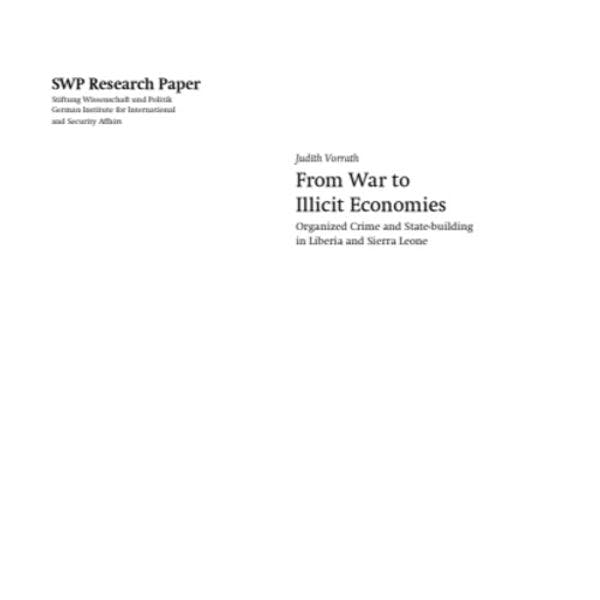From war to illicit economies organised crime and state-building in Liberia and Sierra Leone
Liberia and Sierra Leone are commonly categorised as fragile and conflict-affected states. They are seen as being particularly vulnerable to organised crime due to deficiencies in their criminal justice systems and having insufficient control of their borders. But they also have emerged from peace processes combining state-building with the transformation of war economies. These were strongly based on the competing control of resources such as diamonds, gold, and timber by armed groups and state agents.
A closer look at the illicit economies in both countries today reveals the legacy of these war economies and new dynamics that emerged with West Africa becoming a transit zone for South American cocaine destined for Europe. Although the organisation of crime differs between sectors, the way it is tied to state-building and power structures in Liberia and Sierra Leone is quite similar. Surely, porous borders and a lack of regulation and effective law enforcement are real in both countries. But often organised criminal activities are linked to the very state that is supposed to build and defend the (reformed) framework of legality. Furthermore, certain components of illicit economies have important implications for development.
Therefore, responses to organised crime need to be carefully crafted and should generally apply selective law enforcement measures combined with broader governance reforms and development-related initiatives addressing livelihood, health, and environmental issues.
Keep up-to-date with drug policy developments by subscribing to the IDPC Monthly Alert.
